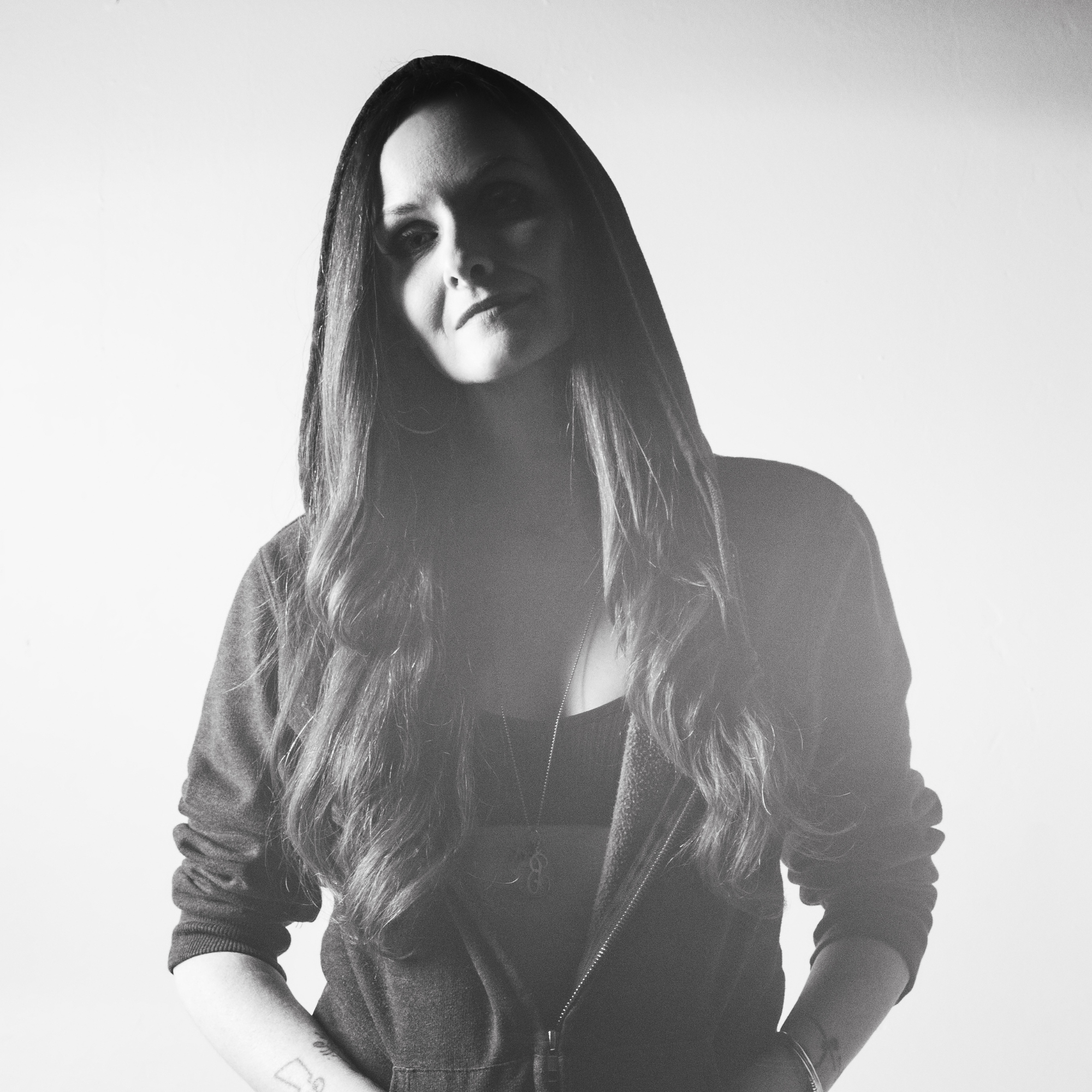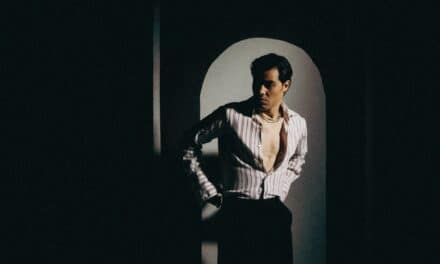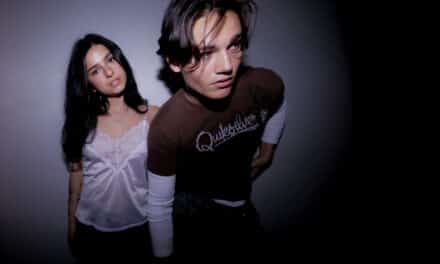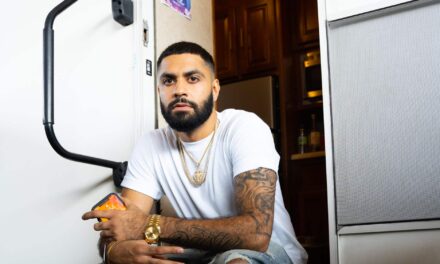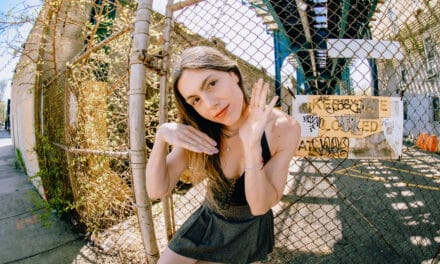photo credit: Anna Haas
On June 13, Grammy-winning singer-songwriter Buick Audra will release ADULT CHILD: a deeply personal and conceptually rich body of work, ADULT CHILD is a sonic self-portrait—part memoir, part meditation—on identity, estrangement, and the lifelong struggle to outrun the ghosts of one’s upbringing. It’s also a reclamation.
Entirely self-produced, ADULT CHILD was recorded between Sound Emporium Studio A and her own Fort Knockout Studio in Nashville. The album marks a creative milestone for Audra, blending stripped-down arrangements with full-band textures, all wrapped in a haunting, collage-like production that mirrors the layered and conflicting emotions at its heart.
To support the album, Audra will embark on a U.S. tour with stops in cities including Chicago, Pittsburgh, and Milwaukee. A special hometown release show is scheduled for June 13 at The Basement in Nashville.
Ahead of the album’s release, Audra has shared the striking new single and video for “IT ALL BELONGED TO ME.” Directed by Audra and longtime collaborator Jerry Roe, the video is a stirring visual essay. It opens with the current-day Audra framed by a wall of photos from her Miami adolescence—images she says span the years between age 15 and 23. As the song plays, vintage footage of Miami and Miami Beach unfurls across her body and face like a cinematic fever dream.
“This video was both beautiful and painful to put together,” Audra shares. “Jerry created this layered landscape that blends the present with the past, and for me, it felt like a kind of abstract baptism.”
Lyrically, “IT ALL BELONGED TO ME” answers a question Audra’s long avoided: does she ever return to her hometown of Miami? The answer is no—not in a decade. Despite her deep pride in her roots, the city remains emotionally fraught, a place bound up in the pain of being “claimed and unclaimed” by those who were meant to raise her. In the song, she confronts that wound with clarity and grace.
“This song is me saying, I wasn’t that ungrateful kid. You might just have been the wrong person to raise me, and that’s not on me,” she says. “Miami belongs to me, even from here, and so does my kid self. It’s a reclamation, if a wildly bittersweet one.”
Audra describes ADULT CHILD as the product of “two overlapping forces”: a growing awareness of the patterns she inherited, and a stubborn desire to define her identity on her own terms. The title—ADULT CHILD—is a term she’s used since she was 18, one loaded with meaning in recovery circles. It signals a history of being raised without stability, of internalized responsibility, of tenuous self-worth.
“It’s a record about fighting for myself,” she explains, “often against my own DNA.”
She is joined on the album by a powerful team of collaborators, including Jerry Roe, Lex Price, and Kris Donegan, with her longtime creative partner Kurt Ballou mixing the record. The album artwork, created by Audra herself, mirrors the musical themes—a tactile collage built from Polaroids, handwritten notes, and layered textures. Like the songs, it’s raw, beautiful, and resolutely hers.
Buick Audra has never been the type to follow a traditional path. Best known for her solo work and as one half of the band Friendship Commanders, she’s also a fierce advocate for creative autonomy and self-definition. With ADULT CHILD, she continues to reject easy narratives in favor of complexity, nuance, and emotional truth.
This is not a comeback—it’s a continuation of a journey that’s been hers all along.
“Adult child” is such a striking phrase—almost like a contradiction in terms. When did you first adopt it as part of your identity, and how has its meaning evolved for you over time?
Thanks for asking! “Adult child” is actually shorthand for a longer term. I can’t say what that is because I don’t want to tell stories that aren’t my own, but if you search “adult child of,” that question may be answered. I’ve identified as an adult child as long as I’ve been an adult; in some recovery rooms, it’s just a point of fact, not a judgement of myself or anyone else. The first time I told the album name to someone who hadn’t worked on the project with me, they laughed and said, “I mean, who among us isn’t?” And I realized it would be assumed by some that I’m calling myself a childish adult. It’s actually kind of the opposite. I felt 40 when I was 7. I have, at times, struggled with an over-developed sense of responsibility. I’m hard on myself. In many ways, I’ve never been young; it wasn’t afforded to me.
“IT ALL BELONGED TO ME” explores themes of estrangement and reclaiming your past. Can you tell us more about the moment that sparked the creation of this song?
Yes, I’d love to. I never really know exactly why songs start to take shape, if I’m honest; sometimes they tell me what I’m thinking before I’m consciously aware of it. But this song started to show itself in Spring of 2021, which was when I realized with complete certainty that the people I’m from are hard for me to know. Of course, I’ve understood that to varying degrees throughout my life, but I hit some new threshold with it and actually blocked their phone numbers about a month before I started to write “IT ALL BELONGED TO ME.” At that point, I’d already not been home to Miami for more than 5 years, due in large part to a harrowing interaction with one of them on my last visit. My only sibling still goes back, and he calls me from there and my heart feels 50 different ways about it. Glad to be away from the elder family members, grateful I’ve finally learned what’s best for me . . . but it aches for the place. The city. That land. That air.
All of that said, it took me three years to write the song. I kept editing and adding to it. Now it perfectly encapsulates what I wanted it to, which is a love for the place I’m from but a rejection of the societal expectations I often feel to “play normal” or “play down” how intense my experiences with family have been. The song holds that duality and I’m really happy with it
In the video for “IT ALL BELONGED TO ME,” you use vintage Miami imagery to convey nostalgia and distance. How did it feel to revisit those moments while creating the visuals?**
It was super emotional but also satisfying. Nowhere else in the world looks like that place, and my visual language was so informed by growing up there. Some of the imagery we used is a little more recent, but a lot of it was from 30, 40, 50 years ago, which was intended to also show how people who are not from there see Miami. At first, I thought I’d stand in front of the projections, but then we did a pass with the imagery projected onto me, and that almost made me weep during the take. I felt it.
And the collage behind me in the opening of the song is all images taken of me in Miami when I was younger. That was intense to assemble.
You’ve described this record as “fighting for yourself, often against your own DNA.” That’s such a powerful line. Was there a specific moment or realization that pushed you to create this project now, at this point in your life?
You know, I had two albums come out back-to-back that were about older stories, and it just felt like it was time to talk about right now. The songs were showing up, those other albums (CONVERSATIONS WITH MY OTHER VOICE, Buick Audra, 2022 and MASS, Friendship Commanders, 2023) had closed some topical chapters for me, and I felt very . . . present. “QUESTIONS FOR THE GODS OF HUMAN BEHAVIOR” was the first song I finished for ADULT CHILD, and I instantly knew I was writing about this lineage thing; this piece of my story that I can’t take off.
I was raised to care for others more than I care for myself, to feel shame for having needs—or even feelings, and to be fine no matter what. My work in recovering from those wild expectations has looked like learning to care for myself—not just physically, fighting shame (all day every day), developing a healthy relationship with my feelings, and admitting that I’m not fine when it’s true. And I’ve had to let a lot of relationships go, especially the ones that were formed when I was living by the old codes. People often can’t adapt to new growth with you. It’s devastating but true. I have to remind myself all the time that I deserve respect and care in my relationships. Isn’t that wild? To have to make an effort around that? But I do. And this record spells it out in long form.
“The Worst People Win” opens the album with a bold statement on power and harm. What inspired this track, and how did you find the right tone to carry such a difficult truth?
This song was a long time coming, as I’ve made these observations for much of my life, but I think I wrote it when I did because of the experience I had with releasing the solo album before it, CONVERSATIONS WITH MY OTHER VOICE. It’s an album about my relationship with my voice, literal and figurative, and how I let my solo music slip away for a while there. The stories involve some other people, and it was interesting to put them into the world and have several people respond with, “Well, so-and-so was always nice when I knew them,” or some version of that. Instead of just having a private thought, they felt they had to defend their relationships with folx they knew had hurt me. And I thought, we are a wild species! Ha. I wrote “THE WORST PEOPLE WIN” about 6 months after that album came out, and the tone just shaped up the way it did. I like that it rocks and isn’t necessarily sad. It’s not a sad sentiment; it’s just a statement of fact. We have an empathy problem and naming it at the top of the record felt like the right move. The empathy deficit is referenced some other places on the record (the bridge of “ITA LL BELONGED TO ME,” as well as the verses on “BIRTHDAYS & BULLSHIT,” to name a couple). When your life isn’t what others consider to be standard, you brush up against the empathy problem all the time; folx just don’t know how to act.
You use both full studio arrangements and intimate stripped-down production across the album. How did you decide which songs needed the “band” treatment and which needed to stand more bare?
The six songs that the full band are on always sounded like that in my head, right from when I wrote each of them. I knew the dudes would be part of the sound with me. Actually, that’s not true: “IT ALL BELONGED TO ME” became more stripped down as we recorded it, which was a surprise in the moment, but we all loved how it felt and sounded, so we went with it. I didn’t know it would be that intimate of a recording when I wrote it, but I knew the band would be on it. But the other band tracks went as planned.
When I wrote “LOSING MY COURAGE,” I almost instantly knew I wanted it to be all vocal, no other instrumentation. There was something about those sentiments that lent themselves to being presented in such a stark way. “YELLOW” was written after the second full band session, and is, in fact, about said session. I wrote it in real time as I built the track for it. I had the chorus and a general idea of how I wanted the verses to feel, so I built a track with drum tracks that I edited to the song’s form and then played guitar and sang over that. It was always the weirdo song that wasn’t going to get the standard approach. I love it for that. And then the spoken piece came to me, and I decided to record it on an old handheld mini tape recorder!
On “YELLOW,” you talk about the habit of self-deprecation as a survival mechanism. How did it feel to write and record a song that lays bare that dynamic so directly?
It was incredibly surprising, that song. I didn’t plan to have another track on the record, and it was the last piece written for the project. But it also felt urgent. I had said I hated myself and questioned my own vocal pitch in front of my band during the second session for the album, so it was a new awareness that I was writing around. It felt both alarmingly true and terribly vulnerable to write and record it, but I also knew that doing so would mark the spot where I caught myself. And I love when art can do that. It’s a snapshot of a real moment. I’m so glad it exists!
You’ve created a visual world for this album using Polaroids, collage, and your own handwriting. What role does visual storytelling play in your music, and how does it complement the sonic narrative of *ADULT CHILD*?
I think I always have a visual thing happening with my music; I tend to see images and colors alongside the music, and my lyrics often use description and color to denote emotion and place. I believe the arts are all different dialects within a larger language, so, music, prose, and visual art are adjacent expressions to me. Music is definitely my first filter through which I see the world, but the other two are always close by.
Because this album is some full band, some partial band (but cut up), some solo, and some spoken word, it immediately became a collage to me. Except we don’t use that word for music, so I had the visuals follow the music’s lead and literally be collaged.
For ADULT CHILD, the songs were so personal and from the bone, having the artwork and the videos match that immediacy seemed natural. The photos were all taken with a One-Step Close-Up Polaroid that I’ve had for most of my life. I love that camera so much that there’s a song on the album named after it! And I have singular handwriting, so it felt like one more human touch, like I was making little art projects to send to friends. Except, the friends are the listeners.
Much of the album explores the tension between healing and estrangement. Do you feel like making this record changed anything about your relationship with your past—or with yourself?
I love this question – thank you for asking it! First, I’ll admit that I didn’t realize how intense this record was until I started tracking vocals, which I always do myself. So, it was like, I finally had some alone time with the music, and it just made me weep. I couldn’t sing much of anything on the first day of vocals. I kept trying to sing “QUESTIONS FOR THE GODS OF HUMAN BEHAVIOR” and every time I got to “Can I slow it down,” I’d start crying. So, tracking the vocals took longer than expected and forced me to sit with this body of work and how intimate it is. And once I did, I got to assess both how I’m doing and how far I’ve come. Five years ago, I was in a very different space with all of these topics. I was still trying to make everything work, to be the one who could magically behave a certain way and make the people I’m from respond differently to me, to love me. But I don’t do that now. I turned the attention to me, to my wellbeing, and to staying alive, which can be hard for people who have endured certain emotional injuries. This album showed me where I’ve grown. Sure, I still struggle with self-worth and am occasionally tempted to be friends with someone who absolutely cannot see me as anything more than a support for them, but that’s nothing compared to what I once put myself through.
And the reason that asking “Can I slow it down” made me cry, is because I did. I did slow down the progression of these effects. And that’s incredible.
You’re an artist who’s known for working in heavier musical genres too, especially with Friendship Commanders. What does it feel like to bring your voice and storytelling into this more personal, nuanced space?
Yeah, it’s wild, I’m the songwriter in both of my current projects, but the work does end up being quite different from one to the other. On this album, I produced the songs so that my voice could really live as a primary instrument out front. The voice is an instrument in FC, too, but there’s just so much sound that I’m often working to get my voice above the din. Ha. ADULT CHILD is vocal-led, and it’s both powerful and vulnerable for it to be so. As far as my figurative, narrative voice and how I used it on this record, I feel like I let down all guards and allowed everyone see what it’s like to be the kid who was raised without the typical supports in place, but now she’s all grown up and doing her best with all of it. Throughout the process of releasing the singles, I’ve felt like I don’t have any skin, but also proud of what I’m doing. I can live with that.
“FIRSTBORN” touches on a very specific family role that’s often loaded with expectation. How did you approach writing a song that’s both deeply personal and widely relatable in its subject matter?
That song just fell out of me, honestly. I think I wrote it in less than 30 minutes. It was right before the second/last band session for the record, and I was sitting in my office looking at this tree in my front yard, and I wrote a song about the flowers on that tree and the cycles of courage, fear, and self-regard that I tend to go through with myself. Being a firstborn daughter, and one who also carries this adult child piece (perfectionistic, hard on myself, lack of familial support) has been, frankly, a lot. But this exact chapter of my life is actually pretty great. So, I wrote a song about how that’s all true at the same time. There’s a lot of acceptance cooked into “FIRSTBORN.”
And as far as it being widely relatable – that’s good to hear! I don’t tend to consider that kind of thing when writing music. I figure if I tell the truth, it will make sense to someone.
You’ve called this record “a portrait of my current self.” Once it’s out in the world, how do you hope listeners see themselves in *ADULT CHILD*? What do you want them to take away from it?
I guess I hope people feel like they know one more weirdo. I feel lonely a lot, and some of that’s on me, but it’s also about how bizarrely together everyone pretends to be. Who does it help? For people who can relate to the sentiments on the record, I hope they feel heard and seen by it. Empowered, even. But for the people who don’t relate, I hope it serves as some sort of guide. Be curious about other kinds of people! Listen to perspectives that don’t match yours! Hear people who don’t come from families like yours when they tell you what it’s like for them. It’s good for all of us.
And mostly, I just hope people like music. Messages aside, I hope the melodies sing you through the summer. It’s what they exist to do.

